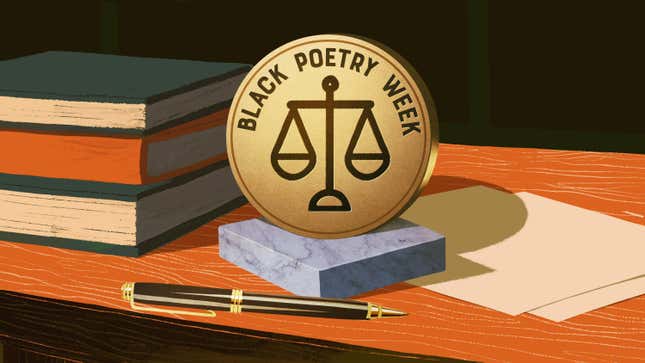
Editor’s note: This week, for National Poetry Month, we’re featuring 37 up-and-coming black poets—including one today who is much more well-known but in a different field—who we expect do amazing work over the next decade. We grouped them by categories, though their works often blur boundaries and defy definitions. Monday’s theme was Black Regionalism, poets who look at black life and society through the prism of geographic regions or cultures. Tuesday, we presented poets who center being black and queer and place white, cis, heteronormativity to a backdrop. On Wednesday, the nine poets featured work in academic, cultural and government institutions committed to elevating and preserving the poetry artform. For Thursday, we explored poets who deploy the full spectrum of the arts: visual arts, theatre, music and, of course, poetry, to convey their artistic expression. For the last day of Black Poetry Week, we’re featuring poets who bear witness to injustice. They are affiliated with movements demanding social change. Their work provokes and transforms. They are especially concerned with the daily struggles of black and marginalized people.
Clint Smith
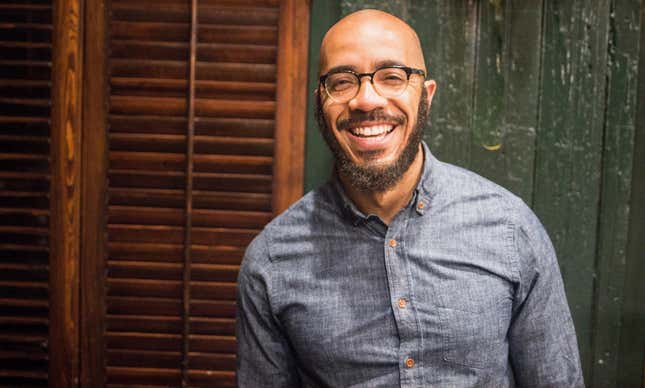
Twitter: @ClintSmithIII
Clint Smith, a 2014 National Poetry Slam champion, was previously named to Forbes 30 Under 30 and Ebony Magazine Power 100 lists. His first poetry collection, Counting Descent (Write Bloody Publishing) won the Black Caucus of the American Library Association Literary Award for Best Poetry Book and was a finalist for an NAACP Image Award. He co-hosts the podcasts Pod Save the People and Justice in America. The Harvard University Ph.D. candidate is a Cave Canem fellow.
Excerpt from “the drone”
the drone was once a scrap of metal the drone looks as if it might be a toy the drone is not a toy the drone could have been something other than a killing machine the drone could have been a house
Eve L. Ewing
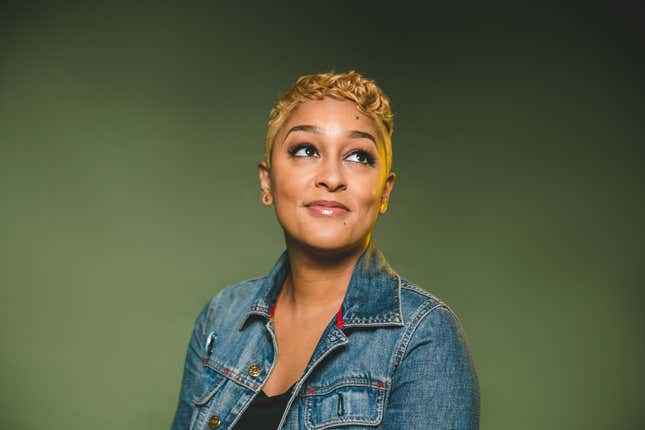
Twitter: @eveewing
Eve Ewing does the most with her superpowers. Right now that is promoting Marvel’s Ironheart comic series, which she wrote. Before that, she was collecting honors for Electric Arches (Haymarket Books), which was named one of the year’s best books by NPR and the Chicago Tribune. Ewing has been a Pushcart Prize nominee and a finalist for the Pamet River Prize. She earned a Bachelor of Arts degree from the University of Chicago, a Master of Arts in Teaching from Dominican University, and a Master of Education and Ph.D. from the Harvard University Graduate School of Education and is an assistant professor at the University of Chicago School of Social Service Administration.
Excerpt from “to the notebook kid”
yo chocolate milk for breakfast kid.
one leg of your sweatpants rolled up
scrounging at the bottom of your mama’s purse
for bus fare and gum
Hanif Abdurraqib
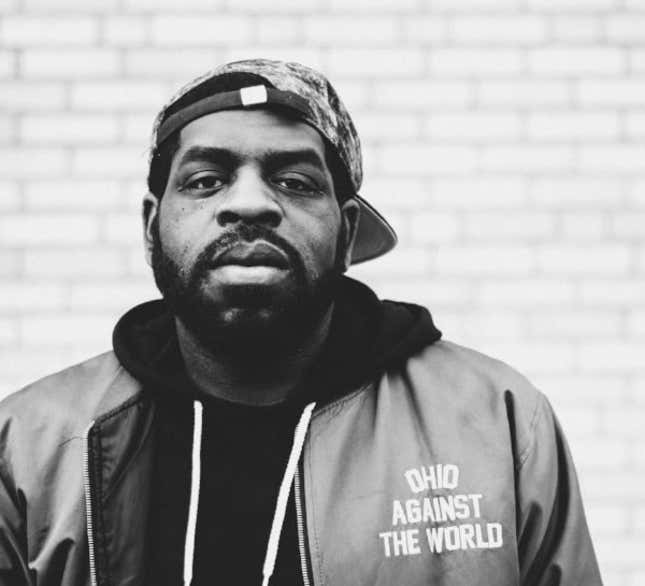
Twitter: @NifMuhammad
Hanif Abdurraqib shares his obsession with the hip-hop quartet, A Tribe Called Quest in his book, Go Ahead in the Rain, but his poetry is also gripping. His book, The Crown Ain’t Worth Much (Button Poetry/Exploding Pinecone Press) was nominated for a Hurston-Wright Legacy Award. An essay collection, They Can’t Kill Us Until They Kill Us (Two Dollar Radio) was named a best book by NPR, GQ and Publisher’s Weekly. He is a member of the poetry collective Echo Hotel with Eve Ewing. Forthcoming: A Fortune For Your Disaster (Tin House 2019) and a history of black performance in the United States, They Don’t Dance No Mo’ (Random House 2020).
Excerpt from “How Can Black People Write About Flowers at a Time Like This”
dear reader, with our heels digging into the good
mud at a swamp’s edge, you might tell me something
about the dandelion & how it is not a flower itself
but a plant made up of several small flowers at its crown
Mahogany L. Browne
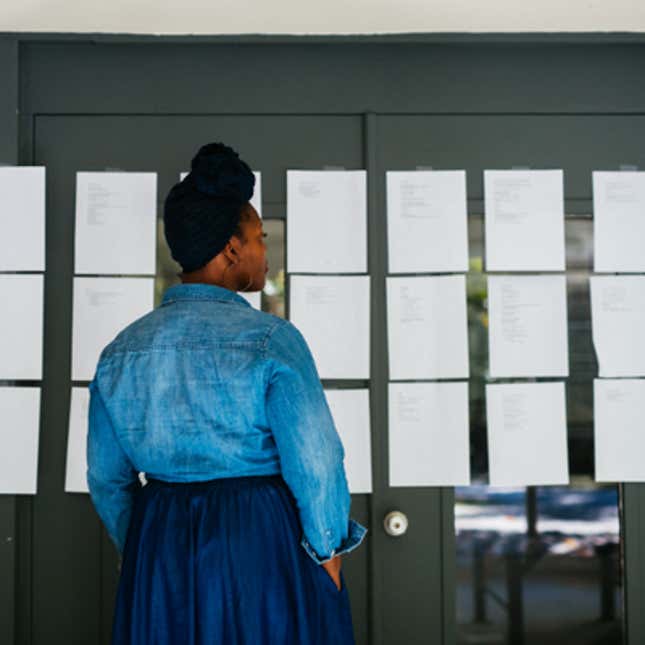
Twitter: @mobrowne
Mahogany L. Browne is the author of Woke Baby and Black Girl Magic (Roaring Brook/Macmillan), Kissing Caskets (Yes Yes Books) and Dear Twitter (Penmanship Books). She has received literary fellowships from Agnes Gund, Air Serenbe, Cave Canem, Poets House and Rauschenberg. The organizer and educator is the artistic director of Urban Word NYC. Previously, she coordinated the 2016 Women of the World Poetry Slam. Browne is the publisher of Penmanship Books, curator of the Nuyorican Poets Cafe Friday Night Slam, founder of the Women Writers of Color Reading Room, and the director of Black Lives Matter at Pratt Institute.
Excerpt from “litany”
today i am a black woman in america
& i am singing a melody ridden lullaby
it sounds like:
the gentrification of a brooklyn stoop
the rent raised three times my wages
the bodega and laundromat burned down on the corner
the people on the corner
Malcolm London
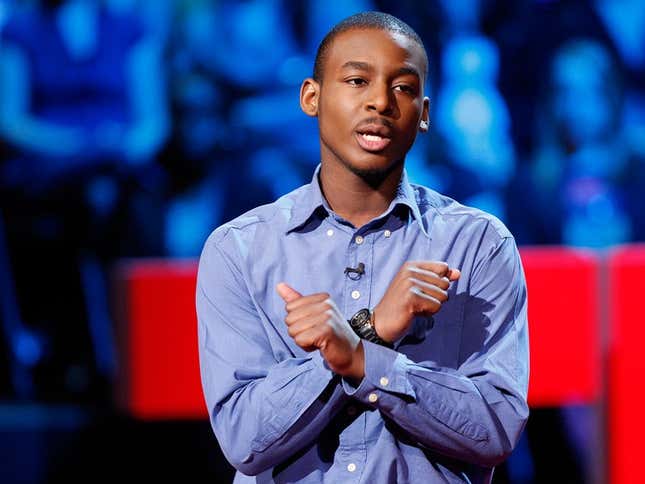
Instagram: @MalcolmLondon
Malcolm London was one of three artists profiled in the Billboard Documentary piece, Saving Chicago: Inside Hip-Hops Movement to Make Chicago a Better Place when his debut album Opia was released in October 2016. As an organizer, London was part of a historic youth delegation to the United Nations in Geneva to address police violence in Chicago. In addition to crafting poems and songs, Malcolm runs the largest youth open mic in Chicago.
Excerpt from “High School Training Ground”
This is a training ground.
Just sought to sort out the “regulars” from the “honors,”
a reoccurring cycle built to recycle the trash of this system.
Morgan Parker
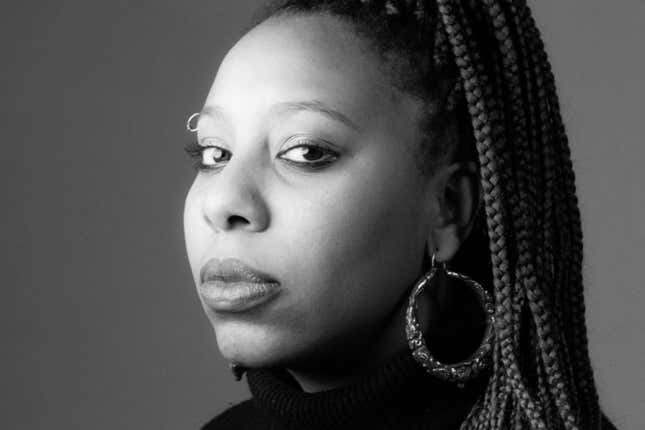
Twitter: @morganapple
Morgan Parker is the author of the poetry collection Magical Negro (Tin House). Her debut young adult novel Who Put This Song On? (Delacorte Press) is forthcoming. She is the recipient of a 2017 National Endowment for the Arts Literature Fellowship, winner of a 2016 Pushcart Prize and a Cave Canem graduate fellow. Morgan received her B.A. from Columbia University and her Master of Fine Arts from NYU. She is the creator and host of Reparations, Live! at the Ace Hotel. She and Angel Nafis form the Black Feminist poetry duo and tour as The Other Black Girl Collective.
Excerpt from “Let Me Handle My Business, Damn”
Took me awhile to learn the good words
make the rain on my window grown
and sexy now I’m in the tub holding down
that on-sale Bordeaux pretending
Reginald Dwayne Betts
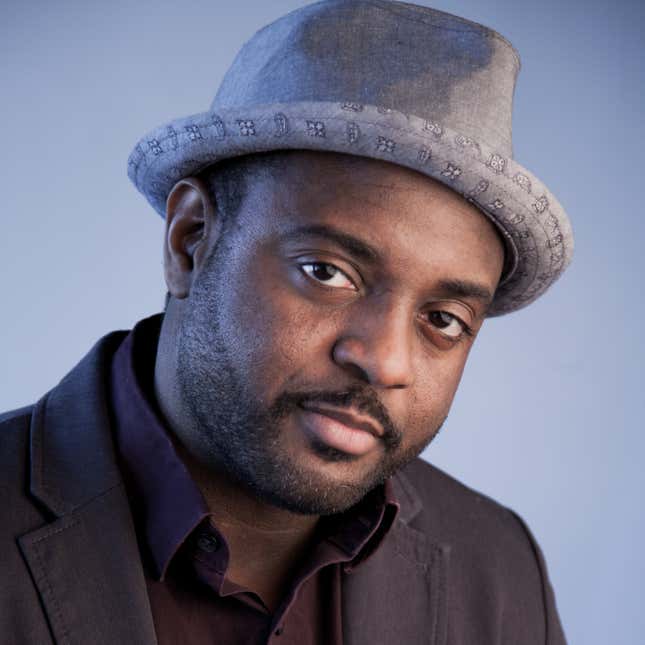
Twitter: @dwaynebetts
Reginald Dwayne Betts’ most recent poetry collection, Felon (W.W. Norton), will be released this fall. Previously, he wrote three books of poetry, as well as a memoir, A Question of Freedom: A Memoir of Learning, Survival, and Coming of Age in Prison (Avery/Penguin), which won the 2010 NAACP Image Award for non-fiction. President Barack Obama appointed Betts to a council focused on juvenile justice. He’s also a 2018 honoree of The Root 100. Betts is a graduate of Prince George’s Community College, the University of Maryland, Warren Wilson College and Yale Law School, where he is currently pursuing his Ph.D.
Excerpt from “At the End of Life, a Secret”
Everything measured. A man twists
a tuft of your hair out for no reason
other than you are naked before him
and he is bored with nakedness.
Yolanda Young is the author of the memoir, On Our Way to Beautiful, published by Random House in 2002. She founded @DorpieBooks to ensure space for black voices. She is also executive director of Lawyers of Color. Follow her on Twitter.

